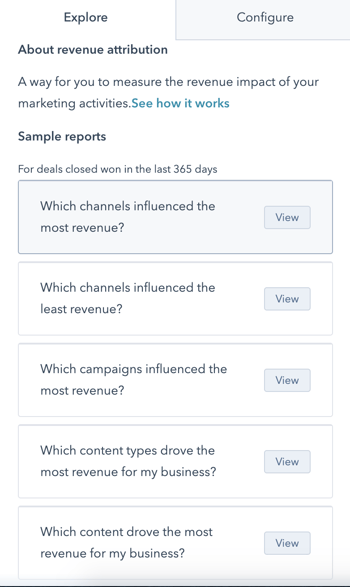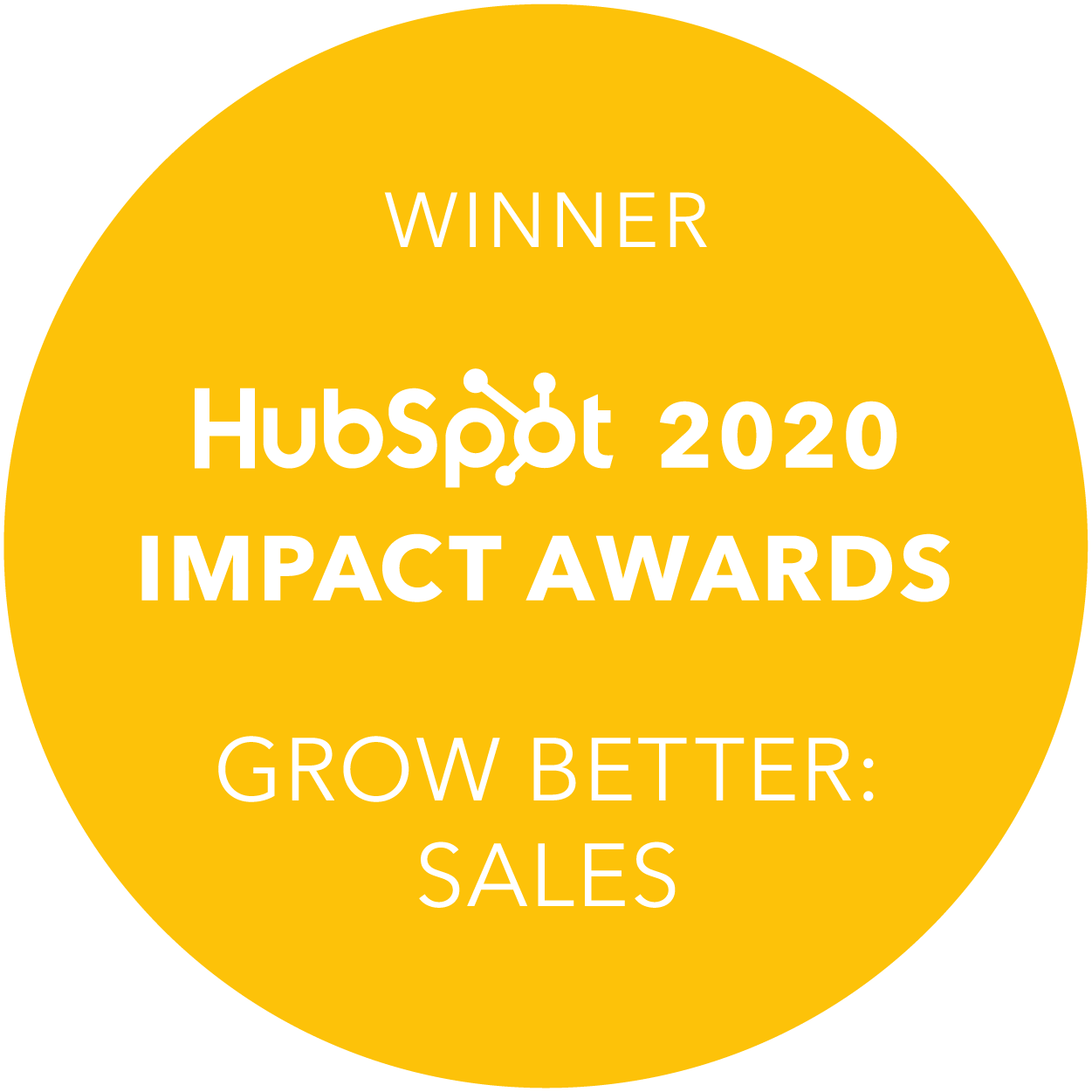Every sale is a win for your business.
However, getting there isn’t always a straightforward process.
Today, most people don’t immediately buy after simply checking your website or after one phone call. In fact, it’s more common for people to interact with several marketing touchpoints from your brand before a deal is closed. This is why your Marketing and Sales teams must work hand-in-hand together to generate leads and make conversions.
However, for many businesses today, only the sales activities are credited - which can be quite limiting.
Why?
Because this approach overlooks how customers journey through multiple pieces of content and marketing channels first before they decide to convert and make a purchase.
This is where the practise of Marketing Attribution comes in.
Through Marketing attribution, you can determine which collective efforts and channels are most effective in influencing a customer’s buying decision.
Here’s how to improve your sales performance and revenue through Marketing Attribution.

What is Marketing Attribution?
Marketing Attribution refers to the process in which a business assesses the Return on Investment (ROI) and value its marketing contributes towards a successful sale.
Simply put, marketing attribution determines and calculates the path a person took to go from stranger to paying customer.
What led them to make that final purchase? Did they read our most recent blog and download that eBook? Or did they see the ad on social media and connect this to the listings we’ve put on our website?
Attribution reporting will help you answer this so you can make better decisions around your Marketing to get better results.
How does HubSpot Marketing Attribution work?
Say you had a customer who purchased your product today.
Realistically, this person’s initial touchpoint with your brand was probably the blog you uploaded last week. They were then retargeted over the next few days by an ad of yours on social media, which then eventually prompted them to visit your site. After visiting your site and checking your products, they decided to contact your sales team to ask a few questions and make an order.
Knowing all of this information is important, but it’s impossible to track and drill right down to the actual deal or interaction or contact that led to that sale, if you don’t have a Marketing Attribution system in place, like the one offered by HubSpot.
HubSpot’s Marketing Attribution monitors your buyer’s journey from start to finish, helping you understand what channels and messaging had the most impact on their overall decision to convert, identify channels that lead to higher sales efficiency and answer the age old marketing question “What’s the ROI of the marketing campaign?”
By reporting on both marketing and sales, HubSpot facilitates different attribution models depending on your business, such as the First Touch Model, Last Touch Model and Full Path Model, as well as the Linear, U-Shaped and W-Model.
Depending on the attribution model you choose, revenue is credited to the interactions that associated contacts had with your business (when the deal is closed in HubSpot). You can then pull a report based on interactions across many deals to show you the attributed revenue of marketing activities such as content, sources, interaction types, and more.
This way, your business can work out what Marketing and Sales activities are performing best, and which aren’t.
If you are new to attribution reporting, HubSpot comes with some pre-set sample reports (and therefore, pre-selected attribution models) to answer popular questions asked by marketers and salespeople.


These all allow you to reliably evaluate a prospect’s journey, whether they are generated through:
- Inbound marketing with no sales involvement
- Inbound marketing, followed up by a sales activity
- An outbound salesperson closing a deal without marketing assistance, or
- An outbound salesperson making the first interaction but closing the deal with the help of marketing.
Through marketing attribution, credit is assigned to the elements that helped complete the journey from start to finish, as defined by the attribution model you use. This way, your business can work out what Marketing and Sales activities are performing best, and which aren’t.
HubSpot allows you to gain a complete picture of this easily so you can make smarter decisions going forward.
The 5 Benefits of Marketing Attribution
Marketing attribution optimises your marketing and sales resources, so your business can focus on improving its conversion rates and overall bottom line.
Aside from this obvious advantage, there are other benefits marketing attribution offers your business, including:
1 - Marketing attribution aligns the goals of your marketing and sales team.
Marketing and sales are two important functions in your business. They should always be on the same page and cooperating to achieve objectives, rather than competing.
Through marketing attribution, your sales and marketing teams can plan what campaigns will close more deals together - using the Campaign dimension drill-down. It also provides key performance indicators and metrics to both groups to evaluate performance more accurately.
2 - Marketing attribution facilitates more organised and reliable reporting.
They say that Marketing isn’t an exact science. But thanks to modern technology, data and numbers can now be generated in your HubSpot platform to allow you to make more precise decisions.
The best part about having your marketing, sales and CRM data all in one place is that you’ll be able to drill right down to the specific contact that is attributed to the final sale. Then, if you want more context to the contact, you can simply click on the contact name and see all the interactions and communications on the contact’s timeline.

This is what you get when you integrate marketing and sales in an attribution report. It prevents your business from double-counting leads and prospects; all while tracking which of your marketing channels and sales activities work well and how they impact each other.
3 - Marketing attribution streamlines processes and systems in your business.
For your business to grow, you must have a coordinated operation.
Marketing attribution makes it easy for processes and systems to be easily integrated together. This is because the sales team receive the information they need to get more sales and the marketing team know what kinds of content and channels are most useful in closing deals.
4 - Marketing attribution enables your business to build a strategy.
With the help of marketing attribution, your sales team will know what kinds of marketing your target audience is exposed to, what channels are preferred and what points of interaction influence their decision making – this all helps them come up with a strategy that drives more sales and profits.
Because of this, your business doesn’t have to make decisions based solely on intuition anymore. You’ll get to focus your time, money and resources on campaigns and activities that actually bring proven results.
5 - Marketing attribution allows your business to budget efficiently
Through its insights, you can determine if you should allocate more of your resources toward a certain marketing campaign or if a sales activity should be prioritised.
People today are more meticulous and have higher expectations than ever before. This makes converting them a challenge.
However, through a marketing attribution system, you will know which path is most effective in converting leads into customers.
Just remember that it’s essential to have the right platform to leverage this system. This is how HubSpot can help you.
How to get the best results from Marketing Attribution using HubSpot
Marketing attribution optimises your marketing and sales resources, so your business can focus on improving its conversion rates and overall bottom line.
In fact, HubSpot has a multi-touch attribution reporting function that enables you to tie your marketing and sales efforts directly to closed deal revenue – helping you understand what's working and what's not throughout your customers’ journey.
It also provides information regarding the contacts generated from multiple conversion paths across your different marketing activities. Through HubSpot’s multi-touch attribution reporting, you can now easily track what specific marketing campaign led to the first interaction all the way to the final sale.
Need SOME HubSpot SOS?
Marketing attribution can be very tricky and confusing. There are so many different attribution models and data dimensions to choose from and each of them has its own flaws. You’re not alone, it is complicated and one every CMO wants answered. Sometimes, a little external help can significantly improve your use and your subsequent return on investment (ROI) from HubSpot and marketing campaigns.
So, we're glad you found us - because at RevM, we are HubSpot management experts.
By setting up and configuring this marketing attribution reporting technology according to your business’ requirements, we make sure you’ll be able to optimise the tracking and nurturing of your leads and customers, all while integrating this properly to your other business systems.
As a renowned Platinum HubSpot Partner, we work with businesses like you to align your teams’ goals and identify how to use HubSpot correctly to achieve excellent results.

Talk to RevM to get the best results from Marketing Attribution
No matter if you are new to HubSpot, you’re considering HubSpot for your business, or have been using HubSpot for a while and wondering if it could be working better for you – RevM can help.
Helping you generate more leads, increase revenue and improve your results, we make sure your marketing attribution is well-set up and working well within HubSpot.
Chat with us today and see how we can help you implement successful marketing and sales strategies.

.png?width=200&height=67&name=RevM%20Digital%20Marketing%20Agency%20Woking%20Surrey%20(1).png)






